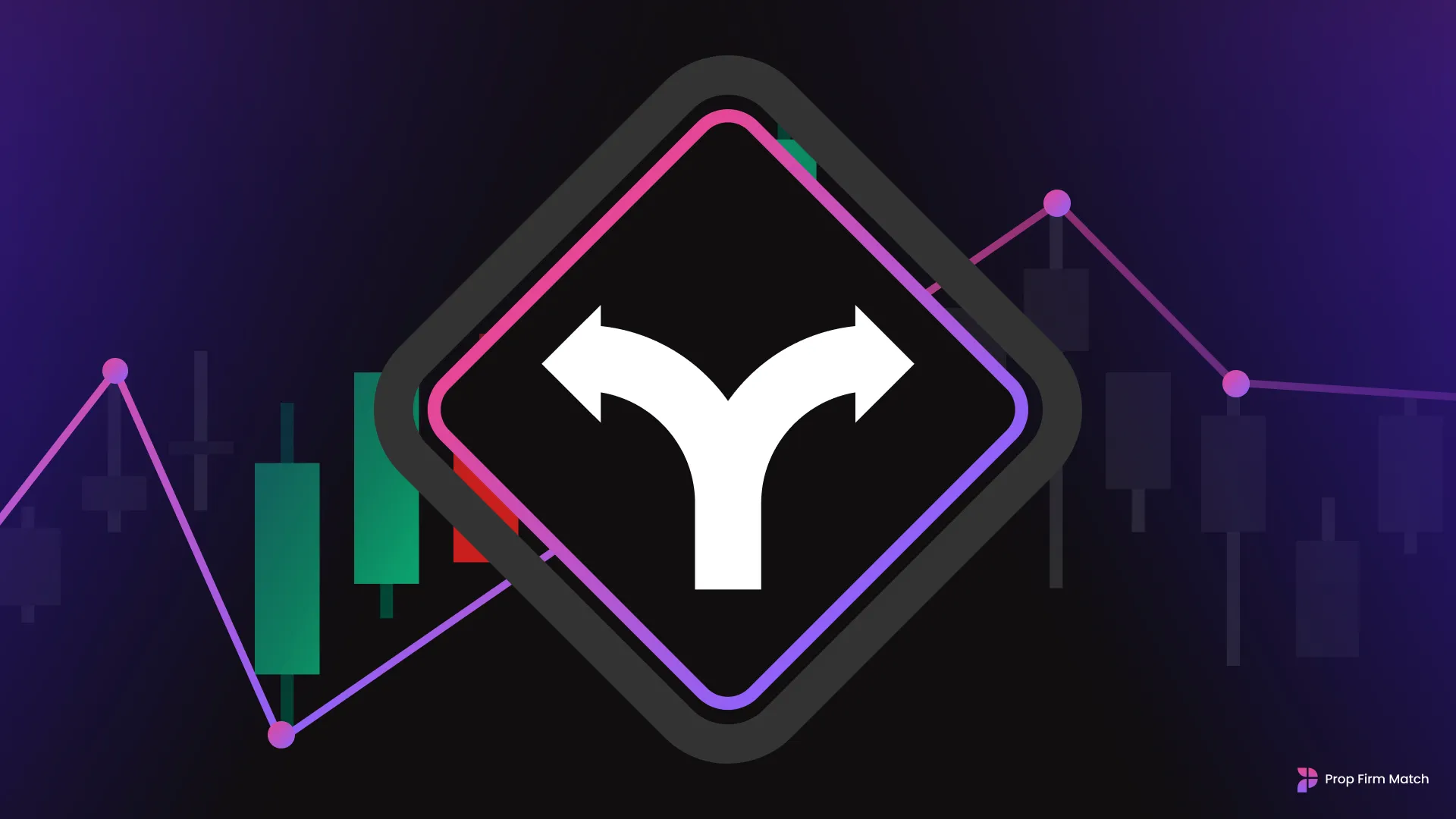Did you know that some traders have more luck than a cat with nine lives, often bouncing back from losses with newfound strategies? In the world of trading, prop firms offer a unique blend of risk and reward that can be both exhilarating and daunting. This article dives into what prop trading firms are, how they differ from traditional firms, and the myriad benefits and risks involved. You'll discover capital access, profit-sharing arrangements, evaluation processes, and the essential trading strategies that can lead to success. Learn about hidden fees, leverage, and the challenges traders face, along with tips on choosing the right prop firm for you. By the end, you’ll have a clearer perspective on whether prop trading aligns with your career goals, brought to you by DayTradingBusiness.
What are prop trading firms?
Prop trading firms are companies that give traders access to their capital to trade financial markets. They share profits with traders and often provide training, technology, and resources. Trading through prop firms allows traders to leverage larger positions without risking personal funds. However, it also involves risks like strict performance targets, profit splits, and potential loss of trading privileges if goals aren’t met. The rewards include access to significant capital, professional support, and potential earnings beyond personal savings.
How do prop firms differ from traditional trading firms?
Prop firms provide traders with capital to trade, sharing profits but taking on risk themselves, unlike traditional trading firms that often trade their own money. They focus on training, support, and access to advanced tools, while traditional firms usually operate with their own capital and have stricter oversight. Prop traders get leverage and resources but must meet performance targets, whereas traditional firms prioritize long-term stability and risk management.
What are the main benefits of trading through prop firms?
Trading through prop firms offers higher leverage, access to advanced tools, and faster capital growth. It allows traders to scale up without risking their own money, boosting potential profits. Prop firms provide structured training and mentorship, improving trading skills. They also offer a supportive community and resources that individual traders might struggle to access.
What are the common risks associated with prop trading?
Common risks of prop trading include significant financial losses due to high leverage, quick margin calls, and market volatility. Traders face the risk of violating firm rules, leading to account suspension or termination. There's also the danger of emotional decisions under pressure, which can worsen losses. Additionally, inconsistent performance can result in losing access to funding or profit-sharing opportunities.
How much capital can I access through a prop firm?
You can access anywhere from $50,000 to several million dollars through a prop firm, depending on your track record, the firm's capital pool, and their scaling rules.
What are typical profit-sharing arrangements with prop firms?
Prop firms typically split profits 50/50 or 60/40 in favor of the trader once the trading account surpasses certain profit targets. Some firms offer tiered arrangements, increasing the trader’s share as they hit higher milestones. Others provide fixed percentages, like 70% for the trader and 30% for the firm, especially in more established setups. Profit splits often include a holdback or recovery fee if the trader breaches risk limits or fails to meet minimum performance standards. Overall, profit-sharing is designed to motivate traders while ensuring the firm recovers its costs and risk.
What are the funding requirements to join a prop firm?

Funding requirements to join a prop firm vary but generally include passing a trading evaluation, demonstrating a profit-making ability, and sometimes paying a fee for the assessment. Some firms require a minimum trading capital or a deposit, while others offer funded accounts after successful testing. The key is proving consistent trading skills and risk management to qualify.
How do prop firms evaluate traders’ skills and performance?
Prop firms evaluate traders’ skills through a combination of trading simulations, real-money accounts, and performance metrics like profitability, consistency, risk management, and adherence to trading rules. They often require traders to pass a challenge or evaluation phase, demonstrating their ability to generate steady profits while controlling losses. Firms also analyze trade quality, decision-making processes, and emotional discipline during live trading.
What trading strategies are most effective with prop firms?
The most effective strategies with prop firms are trend following, swing trading, and scalping. Trend following capitalizes on big moves, while swing trading targets shorter-term price swings. Scalping focuses on quick, small profits from minute price changes. These strategies work well because prop firms often favor disciplined, high-frequency, or momentum-based approaches. Using proper risk management, like tight stop-losses and position sizing, boosts success. Avoid over-leveraging, as it increases risk, especially in volatile markets.
Are there any hidden fees or costs in prop trading agreements?

Yes, some prop trading agreements have hidden fees like platform charges, training costs, or withdrawal fees. Always read the fine print before signing.
Learn about What Are the Costs and Fees of Day Trading Prop Firms?
How does leverage work in prop trading?
Leverage in prop trading amplifies your trading position using borrowed funds from the firm. It allows you to control larger amounts of money than your own capital, boosting potential profits. However, it also increases risk; small market moves can lead to significant losses. Prop firms often set leverage limits to manage this risk, but the core idea is that leverage magnifies both gains and losses.
What are the common challenges traders face with prop firms?
Traders often struggle with strict profit targets, high leverage risks, and tight evaluation periods when working with prop firms. They face pressure to perform consistently without risking personal capital, which can lead to emotional stress. Limited flexibility on trading strategies and strict compliance rules also challenge traders. Additionally, many deal with delayed payouts or losing their access to the firm’s capital if they fail to meet targets.
Can I trade any assets through a prop firm?
No, not all assets are available through prop firms. Most specialize in stocks, forex, or futures, but some may exclude options, cryptocurrencies, or less common assets. Check the specific prop firm's offerings before trading.
How do prop firms handle risk management?
Prop firms manage risk by setting strict trading limits, using stop-loss orders, and monitoring traders’ performance closely. They often restrict position sizes, diversify across assets, and require traders to follow predefined risk protocols. Regular risk assessments and real-time oversight help prevent large losses, ensuring the firm’s capital stays protected.
Learn about How Do Prop Firms Handle Losses in Day Trading?
What are the long-term career prospects with prop trading?
Long-term, prop trading can lead to lucrative careers if you develop strong trading skills and build a solid track record. Many traders move into managerial roles, fund management, or start their own firms. However, it’s risky; consistency and risk management are crucial for sustained success. Without solid performance, career prospects diminish quickly.
What should I consider before joining a prop firm?

Before joining a prop firm, consider their fee structure, payout percentages, and trading capital offered. Assess their reputation and support system, including training and mentorship. Understand the firm's risk management rules and trading restrictions. Check if they have a clear path to profit sharing or bonuses. Evaluate your risk appetite versus the firm's leverage and drawdown limits. Make sure their trading style aligns with yours. Lastly, consider the stability and transparency of the firm to avoid future disputes.
How do I choose the right prop trading firm for me?
Research the firm’s reputation, fee structure, and fee transparency. Look for firms that offer proper training, strong support, and clear profit-sharing rules. Consider their trading capital, risk management policies, and whether their trading style matches your skills. Read reviews from other traders to spot red flags or benefits. Choose a firm that aligns with your trading goals and comfort level with risk.
Learn about How to Choose the Best Prop Firm for Day Trading
Conclusion about The Risks and Rewards of Trading Through Prop Firms
In conclusion, trading through prop firms offers both significant opportunities and inherent risks. While the potential for high returns and access to substantial capital is appealing, traders must navigate challenges such as profit-sharing arrangements, funding requirements, and risk management practices. Understanding these dynamics is crucial for success in the prop trading landscape. For those looking to enhance their trading journey, DayTradingBusiness provides invaluable resources and insights to help you make informed decisions.